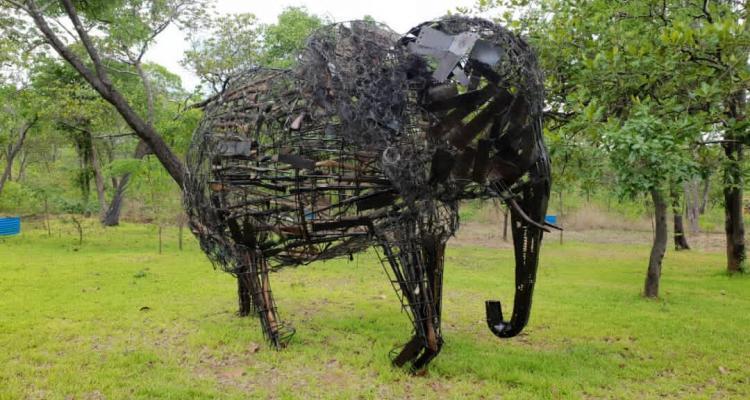
The African Parks-run Nkhotakota Wildlife Reserve, to the east of Central Malawi and near Lake Malawi, is one of the two large wildlife areas which have suffered evils of poaching by surrounding communities.
Over the years, a high demand for wildlife products has turned the ivory trade into a very lucrative business. The market chain for illegal hunting of wildlife got more sophisticated with the use of modern weapons, there has been a significant increase in the catch leading to a sharp decline in the wildlife population.
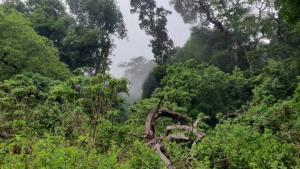
Habitat destruction through bushfires and forest clearance for farmland has also contributed to this decline. The decrease in wildlife populations has been acknowledged as a major concern not only by conservationists but also by local inhabitants whose livelihoods are directly affected.
The 1800 kilometers wildlife reserve is at the centre of three districts of Mzimba, Kasungu and Ntchisi where Miombo woodland has had its habitat destroyed through forest clearance for farmland of Marijuana.
The management of the reserve passed into the hands of African Parks in 2015 and they are making rapid progress carrying out their plans to protect and further develop Nkhotakota. One of the largest elephant translocations in human history took place during 2016/17 with 500 elephants being brought in to Nkhotakota.
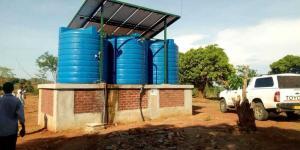
To enhance, protect and sustain ecology and economy of the reserve, African Parks partnered with neighboring communities in conserve wildlife.
The Park’s Manager Samuel Kamoto said that ever since they started working with community’s cases of poaching have been reduced remarkably because they have trained and increased number of law enforcement soldiers and in cases where animals break a fence it the same communities that assist the park to allocate place and bring back the animal to the fence.
Kamoto who is also Country Representative for the Park added they have been engaging with communities in many ways such as awareness meetings to try and make them aware about the importance of the park through civic education and asking them to surrender their poaching firearms to them and receive K5000 in return.
“We have done many projects for our social responsibility which include scholarship for students in government secondary Schools, building of school blocks, establishment of solar power water tanks for daily usage, laundry and irrigation.
“We have taken 130 people for full employment job and other 100 for daily basis, these people are members of the surrounding communities, we brought boreholes and water taps after noticing that our neighbors are using unhygienic water for daily basis,” he explained.
Ivy Mzambo, a resident of Nyoka village in area of Traditional Authority Mponde said that before Africa Parks came to their rescue, they had a lot of problems such as water, hunger, lack of school blocks but the situation improved after they made an agreement with the park to work hand in hand in conserving wildlife.
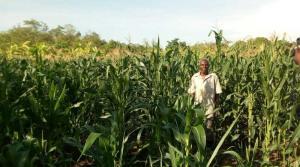
“We have been suffering due to lack of water, we used to fetch water in small hard to reach places where wild animals hide putting our lives at risk because it was only option we had, we tried to reach out to different stakeholders including government for a help but it proved futile.
“African Parks came to our rescue and we are very grateful to them, l can testify today that we will never in our lives experience hunger because we have farms where we grow different vegetables, maize, and other different varieties of crops”, she said.
The improved relations between the communities and the wildlife reserve management has brought stability at the park and has also allowed the management to focus on improving enjoyment for visitors.
A sanctuary has been established and the reserve has been fully fenced to ensure the long term survival of all the animals in this rapidly developing reserve.
As well as the fast developing game viewing safaris, there are opportunities to go walking and hiking in Nkhotakota. Visitors can also paddle canoes on a boat safari down the Bua River as it cuts through the dense bush, or have a go at fishing from the banks of this mighty river.
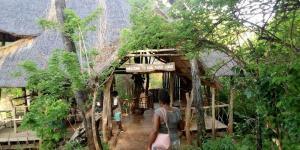
Recent years have seen the opening of brand new, professionally-run accommodation in Nkhotakota Wildlife Reserve for the first time. Three lodges of international standards have been built: Bua River Lodge, Tongole Wilderness Lodge and Kachenga Bush Camp, more recent sister property of Tongole.
The Tongole Foundation supports the local communities through a variety of projects and guests at the lodges are invited to engage with those local communities.
Just outside the Reserve on its eastern boundary (close to Lake Malawi) is the new Rafiki Safari Camp, opened in 2019, and offering luxury tented safari units and camping.
In 2019, the sanctuary was extended to cover 80,000 hectares with access to the Bua river included within the boundary, offering frequent up close wildlife viewing for guests at both lodges.














